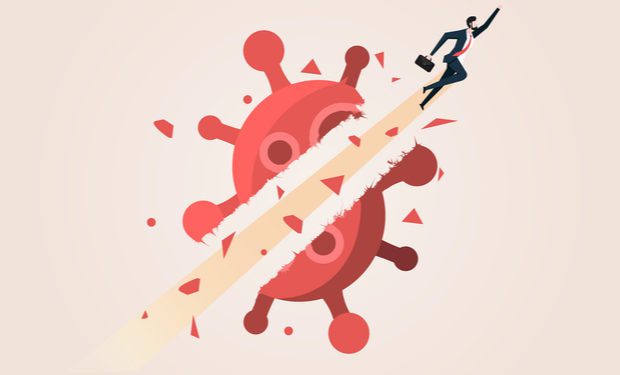
It’s OK to be Scared, but Don’t be Afraid
COVID-19 has put the world as we know it in flux. Campuses are closed. Many of us are working from home or not at all. People are legitimately scared. In times like these, it’s easy to be scared. Things can escalate at any moment. None of us knows when things will return to normal or if they ever will. There is an uncomfortable amount of uncertainty. The news is filled with doomsday negativity.
William Faulkner once wrote, “Be scared. You can’t help that. But don’t be afraid.”
The feeling of being scared passes as situations improve or the scary thing goes away while fear is a continual process. Things will not be this scary forever. As I write this, vaccines are being developed, more is being learned about prevention measures we can take, and resources are being allocated to fighting it. The economy and our facilities will open back up at some point in the near future in some capacity.
The important thing is that we are not afraid. It’s key we don’t get distracted with the worst-case scenarios because that doesn’t help us with what’s right in front of us. It doesn’t help us put one foot in front of the other, whether it’s on a Zoom call with your team, or trying to figure out how to host virtual group fitness classes or esports leagues.
Hunt for the Good Stuff
About a year ago, I was fortunately able to attend a great resiliency training on my campus with professionals from the University of Pennsylvania’s Positive Psychology Center. One of the exercises focused on gratitude. I have to be honest. I sometimes struggle with gratitude and focus more on the negative.
According to authors Chip and Dan Heath in their book “Switch,” people pay closer attention to bad stuff, remember it longer and weigh it more heavily than good information. It’s easy to get stuck on the negative, especially when all we see around us and on television is negative and scary. The exercise they had us do that day was very simple yet very powerful upon reflection. They gave us a small notepad and challenged us over the course of the three-day training to find things in the day that were positive that we were grateful for or, as they termed it, to hunt for the good stuff.
It wasn’t natural at first, and it felt more like “hunting” for something to put down. Over time, it got easier, and I felt my demeanor shifting in a more positive direction. It’s a practice I have continued. The change in mindset made it easier to handle difficult issues as they happened.
There has been a lot of positive for me during this time away. I’ve spent more quality time with my family in the past three weeks than I had the past three months. I’m still able to work and provide for my family which I, like many of you, are very grateful for.
From an industry standpoint, I have seen more collaboration and innovation in the past three weeks than the past several years. There are numerous chat boards or recreation professionals throwing out ideas and helping each other find resources. Schools are working together to overcome challenges and provide content for each other, such as the NIRSA 2020 Recreation Movement Challenge where over 40 schools are putting their virtual fitness content up for any student at any participating school to access, or the weekly “Quarantine Quiz Show” the University of Minnesota-Twin Cities put together that any campus from around the world can participate in. This is great stuff.
We cannot give into fear. Hunt for the good stuff. It’s out there to be found. COVID-19 has given us unique opportunities as leaders. We will either get better as a result of what we choose to do as teams and campuses, or we’ll be worse for what we fail to do. And that is the question every leader must answer. Will we get better, or worse?
Leadership Doesn’t Stop
People are going to inevitably look to the leader in times of uncertainty such as these. Patrick Lencioni, author and CEO of the “Table Group,” said leaders should keep certain virtues in mind during times of uncertainty: be human and be creative.
This is a time to spend a lot of time together — although virtually — talking to people about how they are doing, play games together and being silly. People need connection. If you are wearing a hoodie and a ball cap in a Zoom meeting, oh well. Admit your concerns and that you don’t have the answers. Vulnerability leads to trust. This is also a time to try new things such as virtual programming. Look at your processes to find efficiencies. Some things you have started during this pandemic may ultimately stick around and become a new normal.
We have to keep going. We have no other option. We’ve never faced anything like this before, but the difference here is we are all facing something somewhat together. Like the generations who have come before us and faced similar challenges, we will overcome. This too shall pass. The question is, when it does, will you be better for it or worse? Time will tell.










